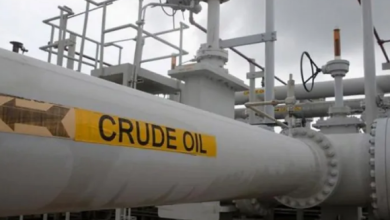Business
NNPC, NLNG, suppliers sign landmark gas supply deals

The Nigerian National Petroleum Company Limited (NNPC Ltd.), Nigerian Liquefied Natural Gas (NLNG), and other Joint Venture (JV) partners have signed agreements to supply 1.3 billion standard cubic feet per day (mmscf/d) of feedgas.
This move aims to ensure sustainability and strengthen gas supply for ongoing and future operations.
The long-term Gas Supply Agreements (GSAs), with options for extension, were signed on Friday at the NNPC Towers in Abuja to boost gas supply to NLNG’s Bonny Plant.
The third-party suppliers include Shell Nigeria Exploration and Production Company Ltd. – Sunlink Energies and Resources Ltd. project, and TotalEnergies E&P Nigeria Ltd. – Amni International Petroleum Development Company Ltd. JV IMA project.
Other suppliers include NNPC Ltd. – First Exploration and Petroleum Development Company Ltd. JV; Shell Nigeria Gas Solutions Ltd. – NNPC Gas Marketing Ltd. JV; OANDO – NNPC E&P JV; and TotalEnergies E&P Nigeria Limited JV Ubeta.
Speaking on the agreements, Dr. Philip Mshelbila, Managing Director and CEO of NLNG, described the development as a strategic move to strengthen feedgas supply to its existing trains on Bonny Island and support the company’s expansion drive.
According to him, “The suppliers will deliver an estimated 1,290 million standard cubic feet per day (mmscf/d), or 13.3 billion cubic meters per year (bcm/yr), of feedgas to NLNG, which will be scaled up gradually over time.
“These new GSAs represent a significant boost to feedgas availability, enhancing NLNG’s capacity to meet its commercial commitments while laying the groundwork for expansion.
“This development aligns with the Federal Government’s Decade of Gas initiative, which places natural gas at the center of Nigeria’s industrialisation and energy transition agenda,” Mshelbila said.
He described the milestone as the culmination of sustained efforts by shareholders and stakeholders to address long-standing gas supply constraints.
In recent years, NLNG’s operations had been significantly impacted by pipeline disruptions, including vandalism and sabotage, which affected upstream gas availability.
“NLNG recognises the challenges the insufficient gas supply has caused to its long-term buyers, customers, shareholders, and the Nigerian economy at large.
“With the new GSAs, NLNG is optimistic about sustainable gas supply for the future and remains grateful for the continued support of its buyers and other stakeholders,” he added.
Mshelbila explained that the new GSAs marked a historic shift for NLNG, which since inception had relied primarily on legacy shareholder joint venture affiliates for gas supply.
With the recent divestment of onshore assets by International Oil Companies (IOCs) to non-shareholder entities, NLNG can now procure feedgas from diverse third-party suppliers to meet its growing needs for both LNG and Natural Gas Liquids production.
In his remarks, Mr Bashir Ojulari, Group CEO of NNPC Ltd., said the NLNG concept had been on the table for two decades before the Federal Government allowed partners and critical enablers to commence and sanction the project.
Ojulari lauded the founders and partners for their resilience through all the challenges from NLNG Train One to Train Six, describing it as a demonstration of global commitment and Nigeria’s readiness to operate a world-class business.
“In spite of the challenges in the Niger Delta, where much of our supply comes from onshore and shallow water, we have faced both technical and non-technical hurdles.
“Technically, we needed to continue developing new gas resources,” he said.
Ojulari noted that persistent pipeline attacks affected oil production and exposed vulnerabilities in gas supply.
He added, “There is still much to be done to unlock gas exploration. Some third parties have ready gas, but the structure and framework to bring the gas to market and maximize capacity utilisation and profitability have been lacking.
“That is why this agreement is a dream come true for Nigeria’s energy sector and a proud moment for the founding partners, who welcomed other parties into this venture,” he said.
Ojulari reaffirmed the commitment to realising the Presidential Executive Orders for the industry while working with partners to unlock opportunities for collective prosperity, in line with national gas development targets for incremental production.
“The landmark GSAs are a game-changer for Nigeria’s gas industry, enhancing local gas production capacity and improving supply, both critical to the country’s energy security, industrialisation goals, and economic growth.”
NAN



